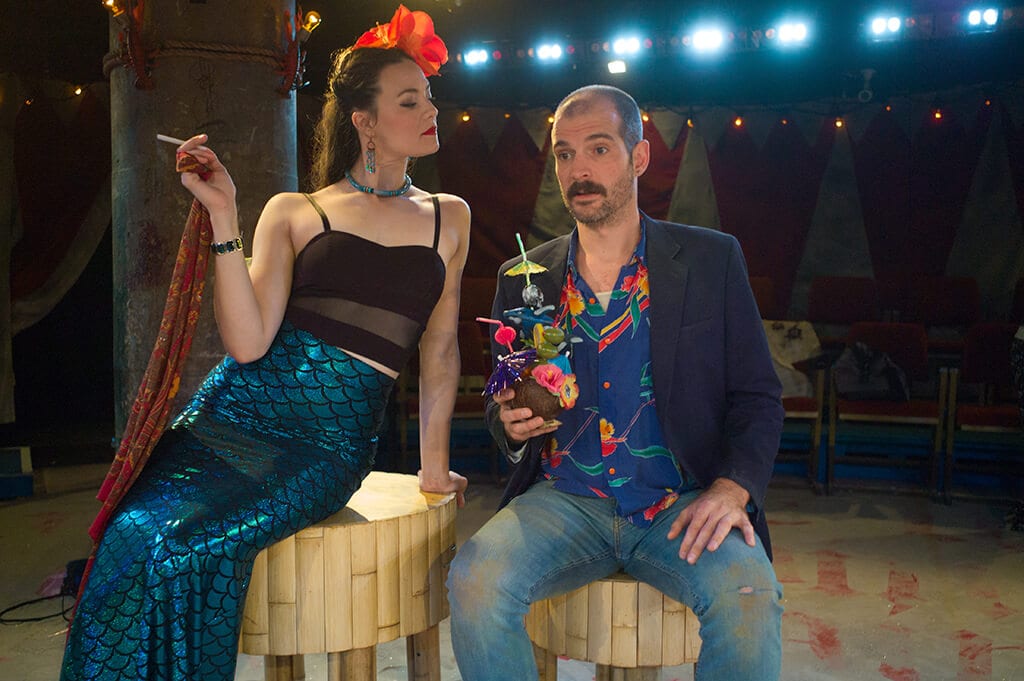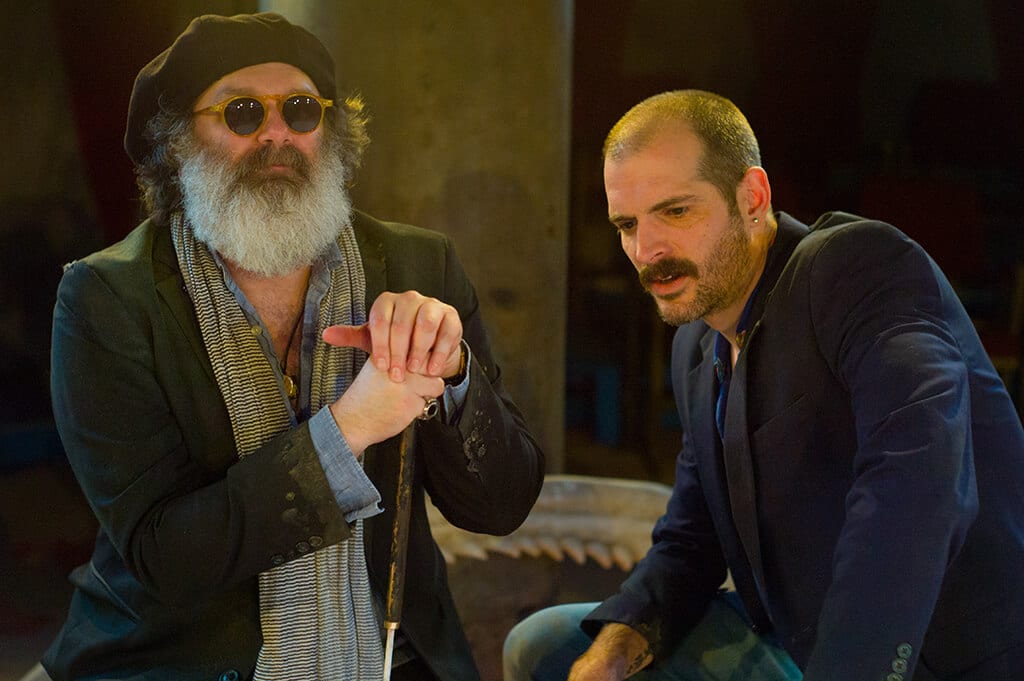It’s almost worth going to Jonah just to see how Director Katherine Owens creates a world and keeps it spinning. Jenkin’s version transplants the biblical story of the reluctant prophet into a kind of jaunty, film noir vaudeville. Re-set in a darkly mythic, gritty American world of tiki bars, beach bums, Dairy Queens, cruise ships and chanteuses in trouble, these tropes are presented with heightened, shimmering glee. There are witty outfits and great, goony, exuberant dance numbers. It all takes place in what appears to be an intimate, round tent, one ring of a cosmic circus. The action plays out with the help of ingenious lighting effects, pulsing dimly in the insides of the great fish, beaming from a steering wheel, or accompanying the presence of the Almighty (baritone Bruce DuBose), a celestial Big Boss in his white suit, with a diffused, kaleidoscopic rainbow.
Jeremy Schwartz is a standout as Mr. Bones, a blind, randy, elder, beach beatnik who serves as a kind of interlocutor in the storytelling, keeping it loose with his low, gravelly laugh. The titular Jonah, here a hipster on the run, is embodied to a tee by Jonathan Brooks. But that vaudevillian mood of entertainment keeps him from ever seeming like he much really believes anything he’s saying or experiencing, so our emotional investment in his journey is slight.
There’s a framing narrative, of a biblical scholar obsessed by the Jonah story. He suffers a stroke and is attended by his daughter and an out-of-phase young beach bum. The scholar’s disconnected style of declaiming both before and after the stroke, reminiscent of Lucky in Waiting for Godot, undercuts our sympathy. Kudos to Katherine Bourne as daughter Mary Margaret for incorporating his odd distance into her reality and investing her part with living, breathing care.
The cast transforms fleetly into one entertaining theatrical creation after another—a pirate crew with a slinky, stylish Queen, tourist partiers, the wicked residents of Nineveh. In Nineveh, Jonah is transformed into a proto-Jesus character, which I suppose is to be expected. Those who know the story from reading it each year on Yom Kippur might not recognize this version from the grumbling, resentful intimate of G-d in the Bible. And Nineveh is rendered as Sodom, rather than as a place where people don’t know their left hand from their right, and much cattle. We also don’t get the gourd from playwright Jenkin, tempting us to misguidedly curse its absence as Jonah once did. But of course Jenkin is entitled to tell the story his way, as he searches for new ways into it. I don’t get the sense that he has found particular meaning yet in his exploration. There’s something about caring, and about living in such a way as to be a worthy vessel for goodness. And he clearly can’t leave the story alone.
The exploration is probably worth the trip. And Owens is fearless and fun in her willingness to stage it. But dazzling stagecraft and stylized declamations are good for about an hour. Eventually we want to care about someone or something. And that usually takes performers simply revealing some emotional reality truthfully, even in the most heightened, theatrical circumstances. It’s a capable troupe. I expect to hear that those who see Jonah later completely disagree with my assessment.


